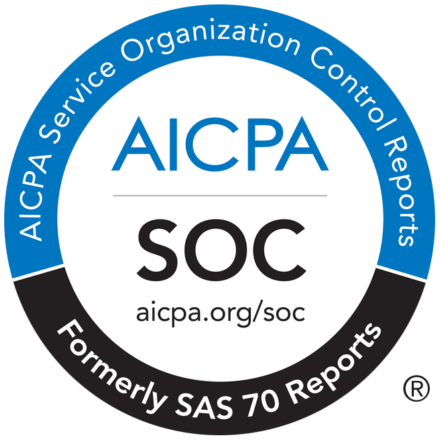The Prominent Types of Plagiarism in the UK
The act of taking undue credit is unethical. Students copying information from books and online sources need to credit the sources appropriately. The absence of correct citations and notes in a dissertation is equal to plagiarism. Plagiarism in the UK is increasing at an exponential pace. To comprehend what is causing plagiarism cases to rise rapidly, it is essential to know about the different kinds of plagiarism that frequently occur in UK universities and higher education institutes.
The Main Types of Plagiarism Are Given Below:
- Word-for-word plagiarism:
Lifting text from an online source or text and using it in the paper without any citation is known as direct plagiarism. Most individuals who have a lazy attitude towards academic work commit this type of plagiarism.
Due to the internet, gaining information is easy, and so is copying passages. Students often have the wrong notion that inserting copied passages won’t get detected immediately. But plagiarism tools are adept at identifying copied passages.
- Self-plagiarism:
This problem often occurs for researchers who have been engaged in research activity and publication of research articles for quite some time. Individuals often forget the research findings that they have already published.
There is a rule that determines the amount of research work that can be reproduced in a new research article. It is essential to cite research work that has been carried out by a person earlier, but it is also vital to stay below the upper limit of copying one’s research work.
- Unintentional plagiarism:
Making mistakes in the names of authors, editors, and other details related to the quoted passage used in the paper causes unintentional plagiarism. These mistakes are regarded as plagiarism and often occur due to a lack of attention. Careful reviewing of academic documents is essential for avoiding accidental plagiarism.
- Patchwork plagiarism:
Deliberately weaving words into a quoted passage to change the paragraph’s appearance while keeping the meaning intact is termed as patchwork or mosaic plagiarism. This kind of plagiarism is not just deliberate but also devious.
People committing patchwork plagiarism in a paper are smart enough to hide their lack of research skills. Most individuals often believe that mosaic plagiarism is almost impossible to detect.
This plagiarism doesn’t involve direct pasting of passages, and so advanced software is used for detecting this kind of plagiarism.
The Significant Problems That Lead to Plagiarism
Plagiarism frequently occurs in term papers. It is essential to examine the chief reasons that propel students to plagiarize to curb the cases of content copying.
To understand what is causing a surge in the cases of plagiarism in the UK, the reasons behind the propensity to plagiarize are worth reviewing. Students who plagiarize often have one or more of the following issues:
- Lack of concern:
Conducting research is a severe task. Students need to understand the hard work associated with research. An indifferent attitude often results in the submission of plagiarized papers.
- Poor time management:
Following a routine is vital to complete research work. Academic papers have several sections that require equal attention. Not following the daily routine drafted for the research work causes problems.
- Not adhering to submission deadlines:
The supervisor/instructor sets a date for submitting the research project. Delaying submission due to non-completion of the assignment on time often prompts students to plagiarize.
- Fear of poor scores/grades:
International students often depend on essay mills to complete their projects because of the fear of failing the course.
The lack of confidence is a significant factor that contributes to the fear of students. Pupils often find it difficult to represent their research findings acceptably.
It causes their overt reliance on essay mills that provide them with the essays they need to complete the course.
- Lack of understanding of the research topic:
It is essential to thoroughly understand the topic that has been chosen for research purposes. Students who don’t understand the main topic completely use the information on the internet to finish the assignment somehow.
Lack of communication between the supervisor and the student also leads to the buildup of confusion. In research work, the presence of any difficulty can hinder the project. Quickly obtaining clarifications helps in solving the problem.
Steps to Follow for Preventing Plagiarism
To avoid plagiarism, it is vital to ensure that students understand the repercussions of cheating. Awareness is a significant factor that deters students from plagiarizing deliberately from others or online sources. The following aspects help in avoiding copy-pasting in academic papers
- Learn about plagiarism:
The concept of plagiarism has to be clear from the very beginning. New learners need to be acquainted with the definition of plagiarism and how it affects an individual’s academic integrity.
- Work responsibly:
Do not jeopardize the research work by doing shoddy research. Invest enough time for proper research work. Check both the online resources and the documents available in any public library, old books, and even in official records, if possible.
- Initiate research work as early as possible
Doing research work requires focus and extensive effort. It is a long drawn process. Thus, starting early helps in completing the work in an orderly and timely manner.
- Avoid the inclination to copy information:
Students plagiarize as they fail to form novel inferences. Copying makes it easier to complete the project without doing any actual research work.
It is easy to copy than to work individually on a topic. This easy route is harmful, for the future, because the punishment for plagiarism can be given after several years. Whenever the copied passages are detected, the action is taken against the researcher.
- Document all reference sources properly:
A particular citation style must be followed for the entire paper. The supervisor/instructor mentions the citation style that has to be used. The correct format has to be used for typing citations for avoiding plagiarism instance.
- Check the dissertation with a plagiarism checker:
Apart from keeping a detailed record of references inserted in a dissertation, online tools help to scan a paper for plagiarism. Use an AI-powered plagiarism checker for scanning the paper and fixing plagiarism issues.
Conclusion:
Avoiding plagiarism is essential to ensure a successful academic career. Plagiarism in the UK among college students is actively curbed by conducting quality checks of dissertations with a high-quality plagiarism checker.

